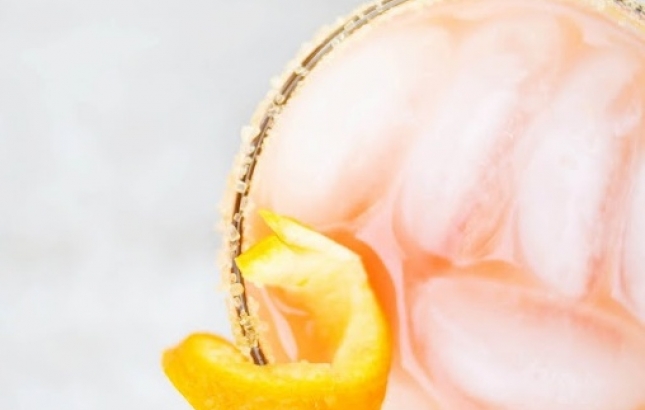
The 'Healthiest' Alcohol Options
A long weekend has just passed, and for many, that means a little bit more relaxation, a little more time and usually hand in hand...a little more indulgence! I'm often asked what the 'healthiest' alcohol options are, and considering I'm no purist, I'm more than happy to share my suggestions when it comes to the odd tipple. Cheers to making considered choices and to everything in moderation!
A long weekend has just passed, and for many, that means a little bit more relaxation, a little more time and usually hand in hand...a little more indulgence! I'm often asked what the 'healthiest' alcohol options are, and considering I'm no purist, I'm more than happy to share my suggestions when it comes to the odd tipple. Cheers to making considered choices and to everything in moderation!
Recent posts by Renée Leonard-Stainton
Red Wine vs. White Wine
It’s been linked with all sorts of health benefits over the years - most often related to heart health. The idea that red wine keeps us healthy comes from something called ‘The French Paradox’, where scientists noticed that despite a diet loaded with saturated fat, very few French people actually die from heart attacks. Red wine contains antioxidants, and the most important of these is resveratrol, which is said to keep your arteries clear of plaque, reducing the risk of heart disease. So… red wine does have health benefits but in saying this, it's important we drink no more than two standard glasses of wine a day. Anymore and you risk the downsides of excessive alcohol intake such as raised blood pressure, potential damage to the heart, liver, kidneys and brain. Also, people with high blood pressure, enlarged hearts, liver disease or anyone with a family history of alcohol abuse shouldn't be downing this daily dose.
White wine contains resveratrol, but not as much as red because red wine is made using the skin of the grape and that's where all the goodness lies. It’s believed that Pinot Noir has the highest concentration of resveratrol.
For the Waistline
Well, firstly, alcohol and dieting don’t mix well—your body processes alcohol first, leaving carbohydrates and fats to get stored as fat instead of getting used as fuel. However, if you’re going to have a drink, clear alcohols such as gin and vodka have the fewest calories in them and mixed with soda water, they’re you’re best bet. Add a couple of lemon or lime slices and you've got a clean and refreshing cocktail. Depending on the type of gin or vodka, you are looking at 65-80 calories per drink compared to about 115 calories for a glass of wine or 163 calories for a creamy liquor. If you choose drinks mixed with fizzy drinks or fruit juices, the sugary mixers make the calorie count skyrocket, so you could go back to basics and try drinking your favorite liquors straight, on the rocks or with a splash of water.
Cheap vs. Expensive wine
There are less antioxidants in the cheaper wine, which comes down to the way it’s made. Cheaper wine doesn't use such rich, ripe fruit and for the antioxidant benefits, you have to have really good fruit that has a lot of color and antioxidants — which is what goes into the more expensive wines. Research I read showed that a $300 bottle of wine had twice as much resveratrol as a bottle costing about $10!
Beer - Good or Bad?
Guinness actually once used the slogan ‘Guinness is good for you’, which did have some substance to it. In general, beers contain several B vitamins. A 12-ounce brew also packs more calcium, magnesium, and selenium than a serving of wine.
However...although the yeast used to make beer results in beers being a source of B vitamins, they’re not much use to us in this form as drinking alcohol actually inhibits absorption of many of those B vitamins! For those who love their lager, unfortunately regular consumption of beer actually results in a net deficit of B vitamins.
Organic Wine
Organic wines contain less sulfites then traditional wines. Sulfites naturally occur in most wines, but additional sulfites are generally used for preservation of wines. Other chemical preservatives are also used in many wines and can worsen the effects of a hangover as the liver has to process even more toxins than just the alcohol itself.
Live well, live long, live naturally
Renée x



